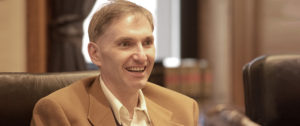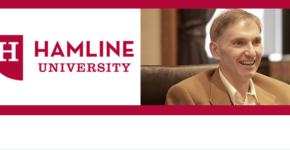 Want to get involved in government? Look local.
Want to get involved in government? Look local.
David Schultz, professor of political science at Hamline University, explores local governments and how much influence people can have when thinking of their own communities.
David Schultz is a Hamline University Professor of Political Science who teaches across a wide range of American politics classes including public policy and administration, campaigns and elections, and government ethics. David is also a professor in the Hamline and University of Minnesota Schools of Law where he teaches election law. David is the author of 30 books and 100+ articles on various aspects of American politics, election law, and the media and politics, and he is regularly interviewed and quoted in the local, national, and international media on these subjects by agencies including the New York Times, The Wall Street Journal, The Washington Post, The Economist, and National Public Radio. His most recent books are Presidential Swing States: Why Only Ten Matter (2015), Election Law and Democratic Theory (2014), and American Politics in the Age of Ignorance: Why Lawmakers Choose Belief Over Research (2013). A three-time Fulbright scholar who has taught extensively in Europe, Professor Schultz is the 2013 Leslie A. Whittington national award winner for excellence in public affairs teaching.
Local Government
At a time when the national government is polarized and unable to get much done, and at a time when state governments too are increasingly dysfunctional, local governments are the last, best hope where the people have a voice or a place at democracy’s table.
Local government matters. It is about where the police arrest the bad guys, the streets are plowed, and the garbage is picked up.
In Minnesota we are showing a path regarding how people from different backgrounds can come together to discuss what vision they have for their local government and what role they want in it.
I am working with a team conducting four communities’ assemblies across Minnesota in the cities of Red Wing, Willmar, Brooklyn Park, and Maplewood. They represent four faces of Minnesota as well as the United States. These assemblies facilitate a cross-section of residents in each community who will learn about what local government does, help them define the values they find important to them, and then develop a series of recommendations regarding what they would envision for reforms to the structure of the local government and what role they as residents have in it.
The four communities are demographically, geographically, and politically diverse. We have learned that when individuals are given the information, tools, and opportunity to talk to their neighbors, much of the partisan divide disappears. They see themselves as neighbors engaged in the common project of trying to live and work together and not as adversaries.
The goal of the four Minnesota Community Assemblies was of course to strengthen governance in the four communities and to produce a new generation of leaders. Already we are seeing some positive results in these communities. But these four communities are also role models for cities and places across the country, offering important lessons and ideas about what works when it comes to overcoming the polarization that grips American politics today.
